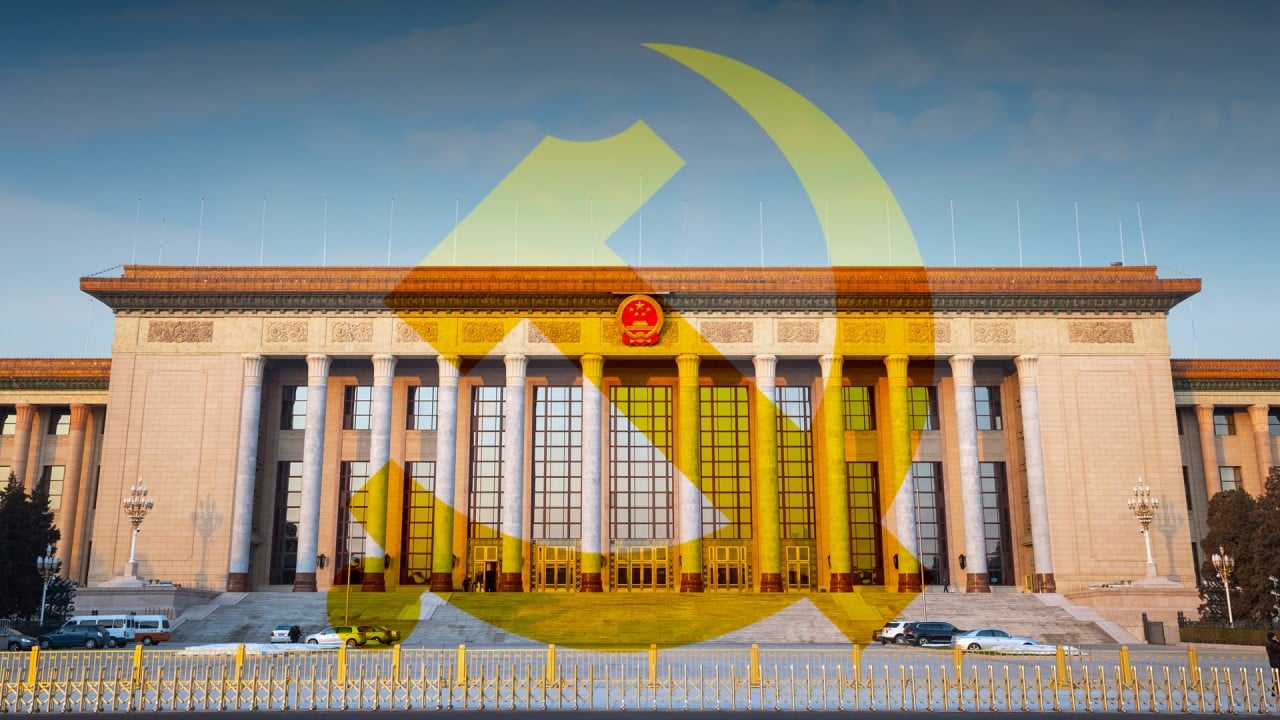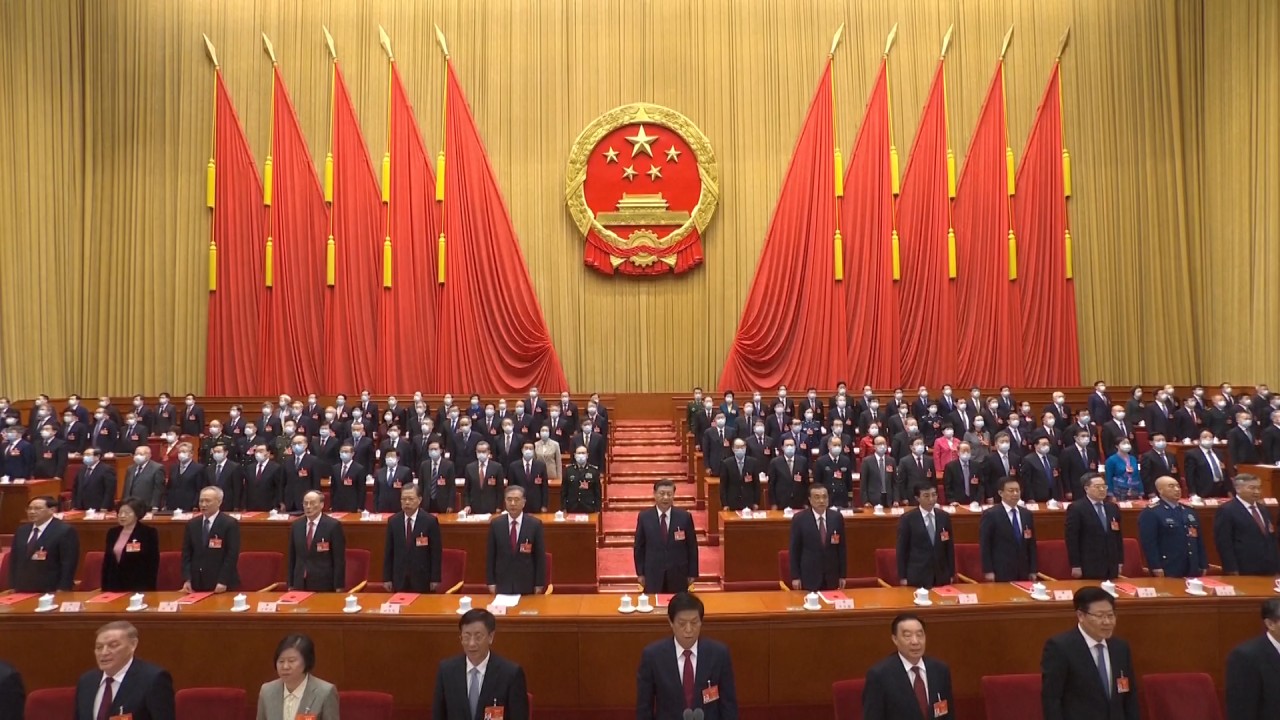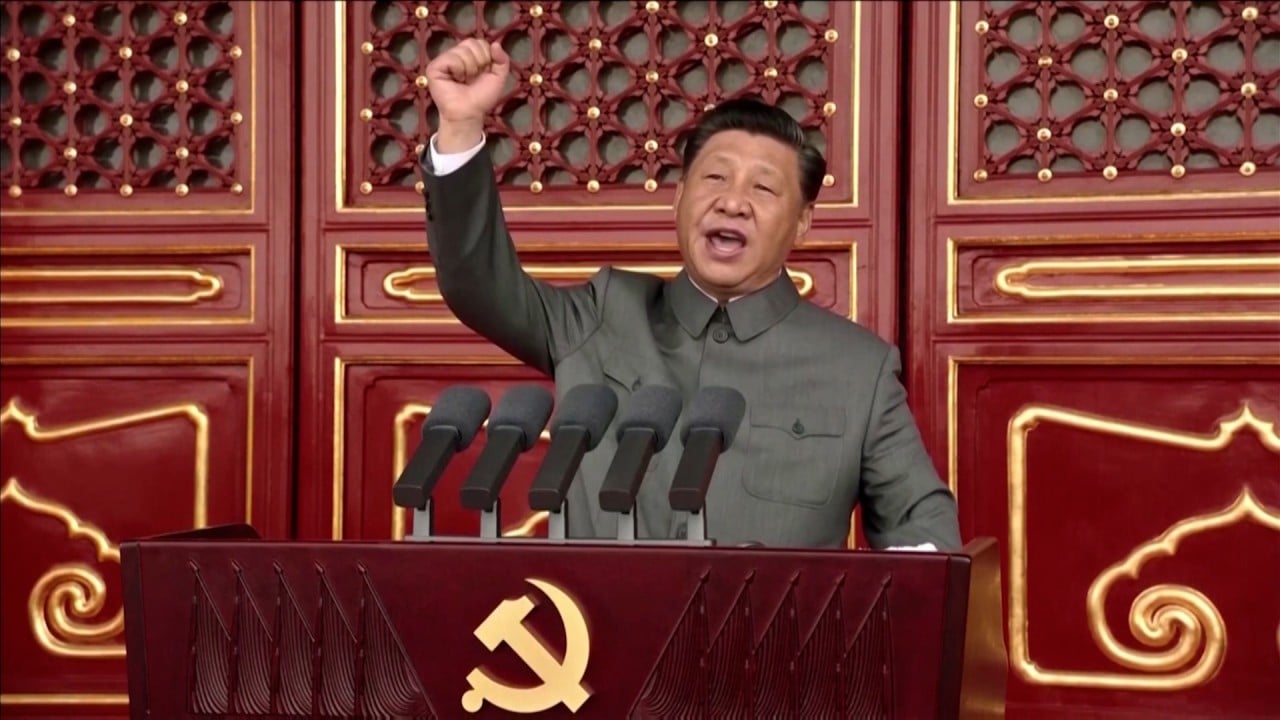
Follow the boss: can China’s Communist Party ignite initiative in its grass-roots cadres?
- Key rule designed to boost initiative also mandates that low-level cadres seek authorisation to make decisions, or face disciplinary action
- The contradictory messages may still see some local leaders gamble on bold action, but the safer strategy for most would be risk aversion, analysts say
Robin Wang carries three mobile phones wherever he goes – two for his boss and one for himself, along with two high-capacity power banks.
“I was so afraid to miss any calls and messages [at the time]. People called to report what was happening, discuss containment measures and ask for instructions,” said Wang, who is based in Pudong district. “For major decisions, my boss needed to call his own bosses for instructions.”

06:45
SCMP Explains: How does the Chinese Communist Party operate?
Wang and his boss are among the millions of Communist Party cadres in China at the lower end of the command chain, responsible for putting the thousands of edicts and orders issued by the leadership into action.
A commentary published by People’s Daily on Wednesday said many grass-roots officials had complained that their energy was being drained by having to meet endless bureaucratic requirements, such as filling in forms via mobile apps, and checking social media.
The party was determined to fight the new form of “formalism” to free up these officials to do work to help the community, the commentary said.
“These new tasks show signs of formalism and they dampen the incentives of grass-roots officials,” it said.
“Formalism and bureaucracy is the big enemy of our party and the people.”
Chinese cadres take enterprising short cuts to study Xi Jinping’s thoughts
Wang said he needed to take notes of almost every conversation and pass on written reports to other offices and departments.
“Keeping records is critical now. We never know when the inspectors will come and check if we have carried out instructions … [if not] I’d have a lot of explaining to do,” he said.
More than 2,400 sweeping codes and guidelines for party workers have been issued under Xi’s watch, according to official media reports. But for grass-roots cadres like Wang, a regulation about “requesting instructions and reporting on major matters”, issued in 2019, carries special weight.
While the regulation aims to encourage cadres to take the initiative when making decisions – it also refers to broadly defined “important matters” that are “outside the authority” of party members or organisations” or those that have “big picture implications”.

01:49
China's National People's Congress closes annual session
Local officials also face immense pressure to contain outbreaks of Covid-19 in their jurisdictions, facing punishment for cases that spread.
For example, more than 100 officials, including many directors of local health commissions, were punished after the coronavirus spread to over a dozen of cities in July, according to a social media platform under the party’s disciplinary watchdog.
Steve Tsang, director of the University of London’s SOAS China Institute, said Xi was “reinvigorating” both the “hardware and software” of the party apparatus so the rank and file strictly followed orders.
It was not surprising that changes to the “hardware”, the party’s rules and regulations, would have an impact on the “software”, or party discipline, Tsang said, because cadres and officials now lacked the motivation to make decisions on their own – especially in emergencies.
Andrew Nathan, a professor of political science at Columbia University, pointed out that the party leadership had a lot of diverse priorities, and lower-level cadres needed to know how to figure out what the top bosses really wanted before they acted.
Just like in the Mao period … now it is better to be more Xi-like rather than less Xi-like
“[Beijing] issues a blinding amount of policy directives. They want cadres to do everything – all at once, [and] all the time. In other words, party directives are contradictory in terms of real life, you cannot follow them all, and some of them are directly contradictory,” Nathan said.
Former head of China’s cyber police caught in Xi’s anti-corruption drive
“While some ambitious local leaders might want to take bold actions, gambling that what he does will be rewarded, the safer strategy adopted by many or most local leaders is risk aversion,” he said.

04:14
Xi Jinping leads celebrations marking centenary of China’s ruling Communist Party
Tsang was of the same opinion. Xi’s strongman rule and style “sends a powerful signal to cadres at the lower level, which is that the safe way is to follow orders from above, rather than take the initiative”, he said.
“Hence, what we have is a situation that with the tightening of party discipline, the party machinery at the lower levels becomes more rigid and less willing to take the initiative, as doing so means taking risks with their career,” Tsang said.
“If following orders from the top and showing respect and loyalty to the top is what will bring promotion, they will respond [accordingly]. Xi wants local initiatives that deliver results but he does not put in place a system of rewarding such initiatives, since local initiatives can also result in deviation from orders from the Party Central or [Xi] himself.”
Junior cadre Wang in Shanghai feels like he is “walking on thin ice” most of the time.
“I have become a bit paranoid now. Before I go to bed, I always go over everything that I have done during the day. Have I reported everything that I was supposed to? Have I recorded everything that needed to be recorded in the logbook?” he said.
“I will call it a very good day if the phones don’t ring at night.”

